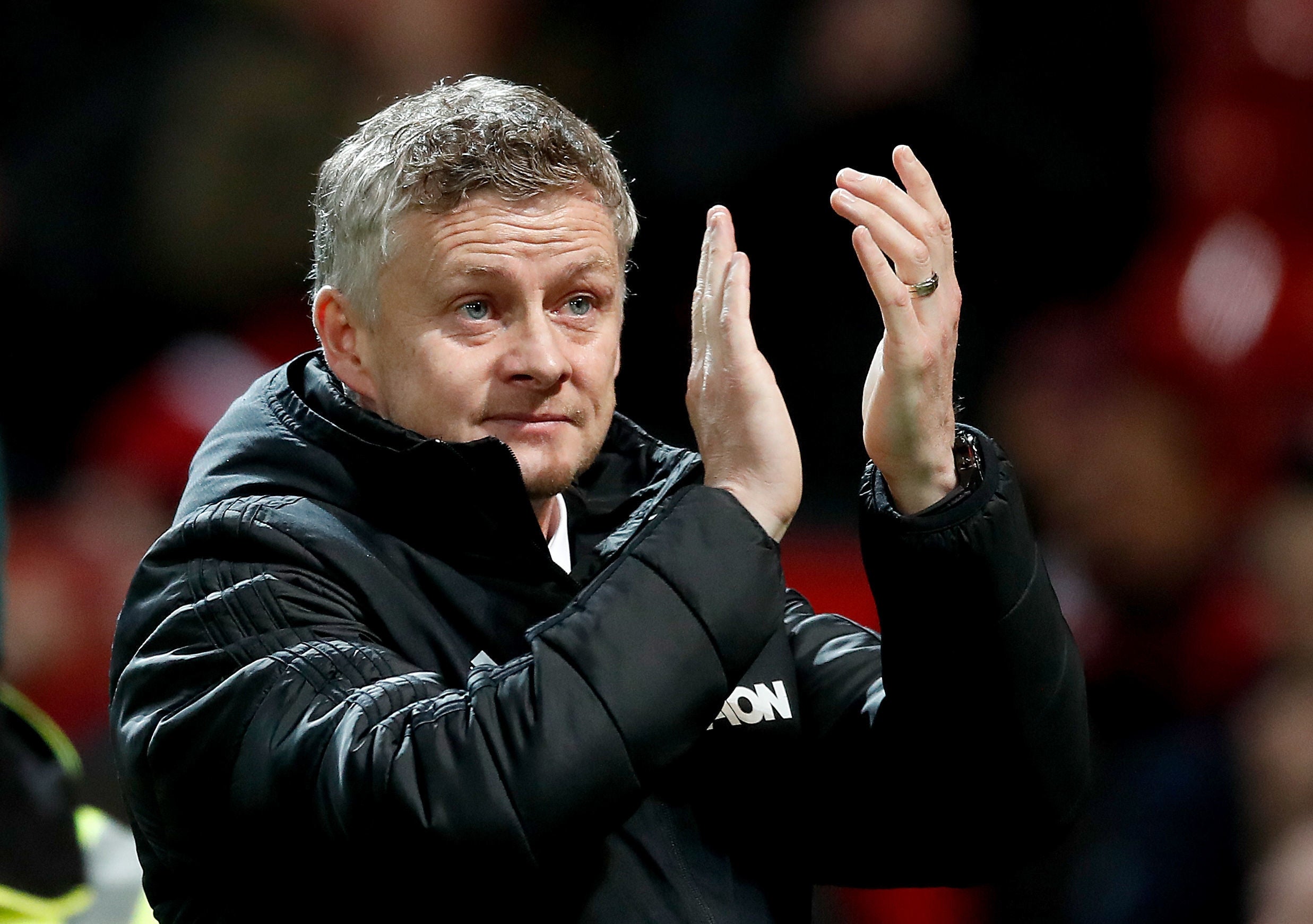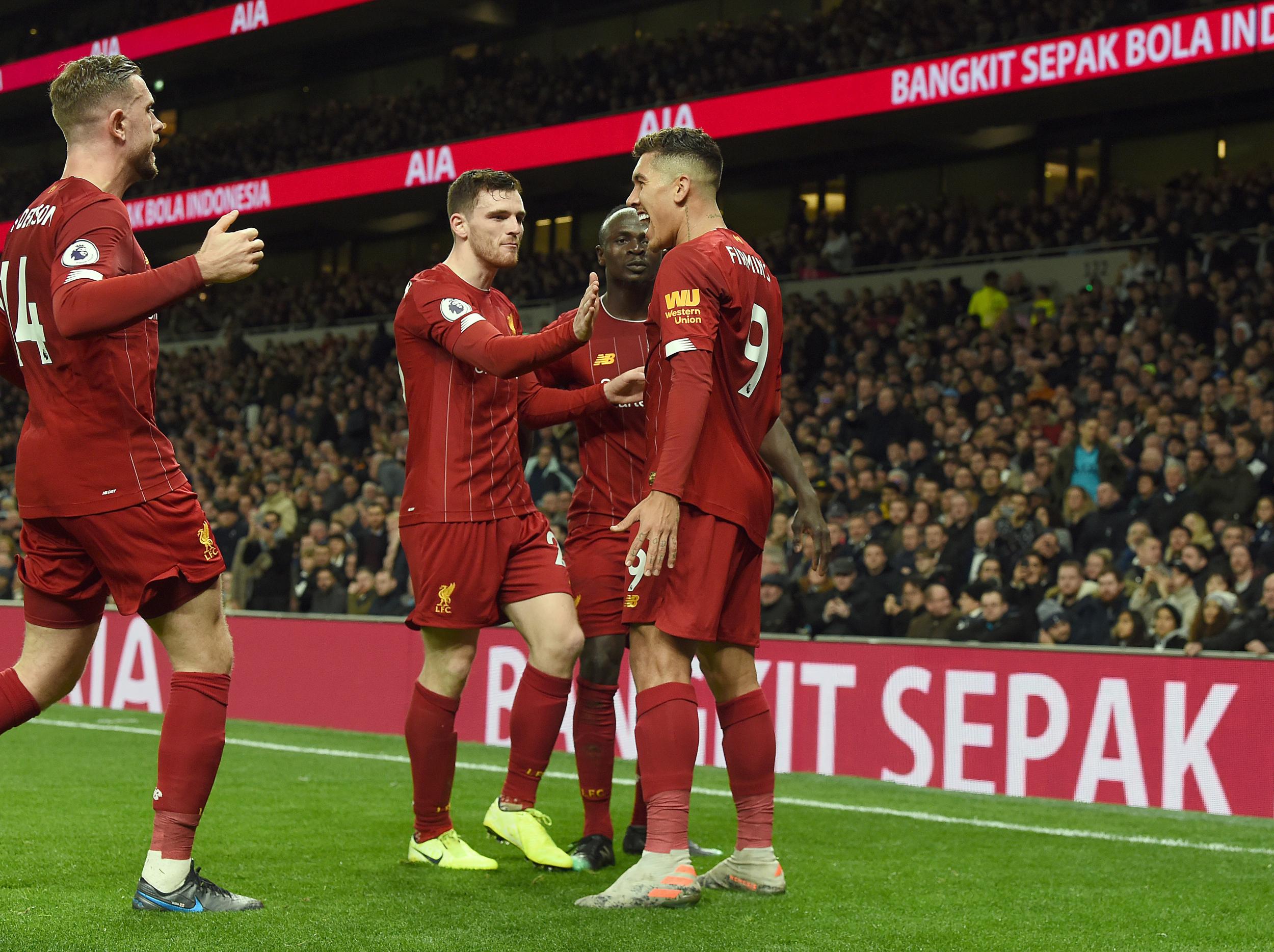Liverpool vs Man United: The Reds’ current run is Fergie-esque – this is how Ole Gunnar Solskjaer can stop them
The Norwegian is the only manager to deny Jurgen Klopp’s side victory in the Premier League this season, with elements of the Reds resembling great United sides of the past

Your support helps us to tell the story
From reproductive rights to climate change to Big Tech, The Independent is on the ground when the story is developing. Whether it's investigating the financials of Elon Musk's pro-Trump PAC or producing our latest documentary, 'The A Word', which shines a light on the American women fighting for reproductive rights, we know how important it is to parse out the facts from the messaging.
At such a critical moment in US history, we need reporters on the ground. Your donation allows us to keep sending journalists to speak to both sides of the story.
The Independent is trusted by Americans across the entire political spectrum. And unlike many other quality news outlets, we choose not to lock Americans out of our reporting and analysis with paywalls. We believe quality journalism should be available to everyone, paid for by those who can afford it.
Your support makes all the difference.It is nostalgia Ole Gunnar Solskjaer might not be so willing to engage in, but there are many elements of this Liverpool side that surely remind him of his best Manchester United teams.
It is not just that they’re European champions, or even the winning run they’re on as they hone in on a title. Liverpool have obliterated Sir Alex Ferguson’s best United sides, as well as pretty much everyone else, in terms of pure results. It is more so the “rhythm” that has fired such a run, and continues to propel this team. That is very reminiscent of Ferguson’s best United teams. They are just on that plane of performance, and mentality, where everything eventually comes off. It comes from complete trust in how the side works, that offers such a level of conviction in every individual piece of play.
This was especially true in what now feels the season’s peak display, and what may come to be seen as an inevitable title win’s signature performance: the 4-0 win away to Leicester City over Christmas. As much as a team convincingly winning a significant match, it was one fully understanding the game’s symbolic importance and thereby ruthlessly emphasising their superiority and complete command of every facet of their play.
Ferguson had many like this, from the 3-0 win over Liverpool in 2007-08 to the 6-1 over Arsenal in 2000-01 to – perhaps most closely – the 3-0 away to Norwich City in that long-awaited title season of 1992-93. Paul Parker played in that game at Carrow Road and just remembers the vigour of the team.
“The boss gave a speech about individuals and standards and we went out and destroyed Norwich,” Parker remembers. This is now the big challenge for Solskjaer, as he finds himself on the other side of such a force of will, that has only grown since he became the first manager to claim a league result off the leaders this season. It is also the big question for the rest of Liverpool’s season, especially as regards to just how much this side can achieve. Figuring out how to stop them tactically is only the first part. There’s then the more confounding issue of mentally unsettling them, of breaking that will – if it’s even possible. It wasn’t with that United, because of how hardwired the hard edge was.
Parker described Ferguson’s aggression before that Norwich game, but Klopp does have a different way of engendering it. These are different times, when a less confrontational approach is required. Ferguson himself realised that. Anyone else just has to look at the results for the realisation of other differences. That United win over Norwich sparked off a seven-game winning streak that secured the first ever Premier League title, and seemed so sensationally commanding at the time. This was what true champions did. It is a run that now seems almost quaint, especially next to Liverpool’s 20 from 21, as well as last season’s relentless race with Manchester City, to follow on from City’s own 18-game winning streaks the previous season.
That itself points to the different contexts of these conquests, especially as regards finance. The vast disparities re-emphasised and reinforced by the new figures in the Deloitte money league this week indicate there is now a minimal threshold of economic power to even compete. Liverpool have been at the lower end of that, which itself only emphasises the high-class job Klopp and the club have done. This has been a marvel of coaching and intelligence, and a lesson for the rest of the game – not least United. Liverpool put their failures into sharp focus.
But there’s also the feeling that the financial advantage of these super-clubs actually amplifies the impact when they do get it so right. It is as if there is an exponential effect on their excellence. How else to explain so many records broken – from best starts to winning runs – across Europe over the last few years, from Juventus to Bayern Munich to Paris Saint-Germain to the Premier League? The vast majority of best seasons have come in the last decade.

When these sides are on it, as Liverpool so brilliantly are, they don’t even suffer the old-fashioned bumps even the best champions used to. United’s treble season saw a 0-0 to relegate Blackburn Rovers in the penultimate game of the season. Liverpool’s own three-trophy European Cup campaign of 1983-84 saw late slips to Stoke City, Leicester City, Ipswich Town and Birmingham City. It is why last season’s flurry of draws in spring felt so dramatically consequential. They mean much more than they used to.
It is also why is has started to feel unfair to compare this Liverpool to their great teams of the past, as regards historical legacy and outright quality. Their “numbers” may be far superior to what went before, but the competitive context was just so different. “It’s a completely different economic situation,” football historian David Goldblatt says. “Liverpool’s dominance in the 80s is not so much based on financial superiority the way that today’s clubs are, including Liverpool. The Moores family are not really pouring money into it. Look at the state of Melwood before it got rebuilt under the Moores. I think you’re right to say Liverpool are at the lower end of the elite clubs, financially, and they don’t have to have money pumped into them by dodgy means by Etihad sponsorships because they’re an extraordinary global brand.”
The principles, however, remain the same. It is why you don’t have to look as far as United for comparisons with this kind of rhythm. “Klopp could easily have been in the boot room,” Mark Lawrenson, a key member of so many Liverpool title wins in the 1980s, says. “He’s brilliant at this. The mindset was initially started by Bob Paisley, Joe Fagan and Ronnie Moran in different ways but, don’t forget, we had Kenny Dalglish and Graeme Souness too.

“The coaching staff would radiate a sense of ‘this is what we do, this is business, just take care of your jobs.’ It was just almost every week the same.”
It is certainly the same every week now: win after win after win after win. This is what Solskjaer must disrupt.
He is the only manager to do so in the league this season, and United have still had a capacity for performing in games against Liverpool – in another parallel with the 1980s – but even that was before this Liverpool had a full sense of themselves. It was before this run of form really revved up, and they were psychologically reinforced by the growing gap to City. It is why one of the themes of the season, and one that will be especially prominent around the Champions League tie with Diego Simeone’s Atletico Madrid, is how you stop Liverpool. It feels like it is already growing in that way that was discussed around Barcelona in 2009-10.
Many coaches and analysts within the game feel the solution is stopping the wing-backs – for they are not “full-backs” – so that attacking play is funnelled towards a relatively unimaginative midfield. That is easier said than actually done, however, and one of the huge strengths of Klopp’s entire approach – and the initial principle of gegenpressing – is turning such responses and moves against the opposition. It only perpetuates Liverpool’s rhythm. It only reinforces. It is why they have no need for nostalgia. United are again going to have to work out how to peg them back.
Join our commenting forum
Join thought-provoking conversations, follow other Independent readers and see their replies
Comments